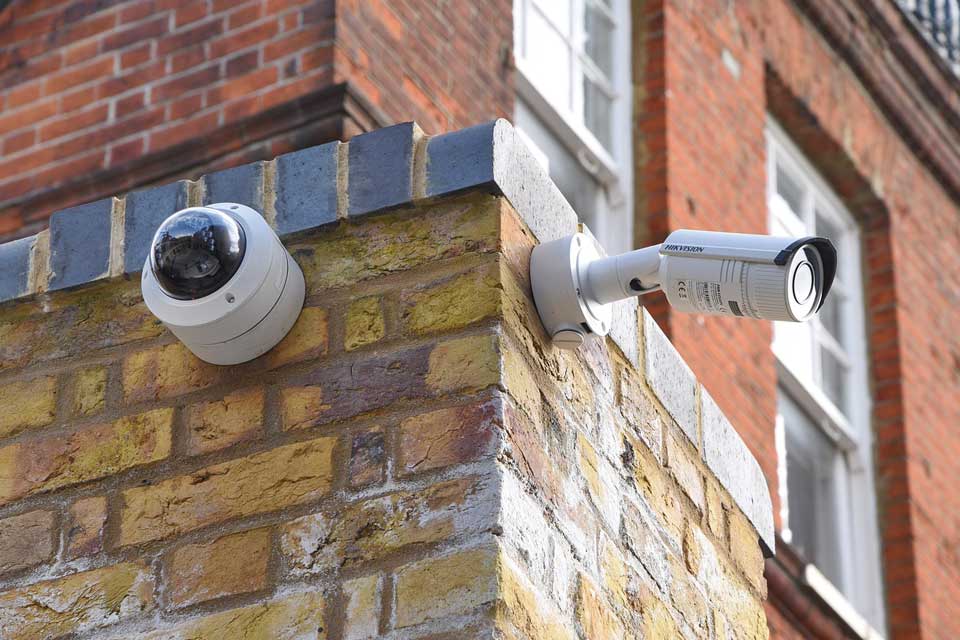By 2020 CCTV
It’s not unusual for a parent to be worried about their child when they venture off to university, especially when they’re moving out of the family home.
And a video that went viral earlier last year that recorded students at Nottingham Trent University chanting racist comments in front of the door of another student in their university accommodation (halls) — will only have heightened concerns from a parent’s perspective.
Filmed by first-year student Rufaro Chisango, her experiences were brought to the public’s attention when the video went viral on Twitter. Thankfully, with the advancements in technology and the implementation of access control systems in university halls, Rufaro was physically safe from any threat. But now, expectations must be higher to ensure that this type of behaviour, or risk, does not happen again.
Why is access control important on campus?
Access control should be an initial consideration when it comes to protecting a specific location, and there are two main functions to the systems that can be used. The first has a more basic yet effective approach and has the ability to enable or prevent someone from entering or exiting a location — this could range from the whole site, a wing of a building, or a singular room that needs protecting from unauthorised personnel.
On the other hand, the second function enables internal systems to monitor movements around the premises — which then allow security teams to conduct data trails for future audits.
When looking at university accommodation in particular, valid credentials are essential. The purpose of having such security measures in place is to help protect students from unauthorised access, which could potentially threaten their wellbeing or put their possessions at risk.
Parents and their children are entitled to have higher expectations when it comes to how secure their accommodation is, especially with an increase in fees. According to a survey carried out by Save The Student, the average cost of renting is £131 per week, which leaves students with £8 to live on after deducting the payment from their maintenance loan.
As such high costs can often leave students compromising on their lifestyle, their security should not factor into this. Although university culture does play a large part on student life, excessive and unordinary behaviour is not acceptable. It was found that 52% of students have noisy housemates, 37% of housemates steal food (considered as theft), 8% have dangerous living conditions, and an astonishing 6% have experienced a break in or a burglary.
As a result, one in three students believe that their accommodation isn’t worth the money. Now, there is a demand for larger investments into suffering areas — accommodation providers are under extreme amounts of pressure to make changes otherwise they could encounter detrimental damages that will impact them in the long run.
What are the benefits?
Whether they’re placed around campus buildings or within accommodation, access control systems have obvious advantages. Evidently from the story above regarding Rufaro Chisango , it is critical to ensure the safety and protection of young people as unsolicited actions can be carried out without any prior detection.
Although access control is becoming more of a necessity across such locations, university accommodation providers are allowing students to become more selective with the type of flat they choose — loud or quiet, gender and more. However, there are still many faults. Universities should be looking at implementing more personal options that enable young people to properly filter down the type of roommates they are looking for — such as language, religion, race, and more to create a safer and more familiar environment for all.
But what are the core benefits?
Keys Can Be Deactivated — These keys can’t be copied once students have moved out of the complex as they will be deactivated for the next set of students. This removes the risk of any unauthorised entry and heightens the safety of the new tenant after the previous lease is up.
You Must Have Valid Credentials —If someone doesn’t have the correct credentials, they won’t be able to enter the building. As they require the swipe of a unique key card for entry permissions which are given only to students, this will make it difficult for anyone other those who are enrolled as residents to enter.
Observing Activity —Unlike old methods of monitoring who goes in and who goes out of a building, this data can be collected digitally. Using access control systems and key cards, this can all be documented and easily accessed when needed.
Limiting Access —One of the most important parts of access control is the ability to limit access and set permissions to certain users. This is particularly useful when it comes to accommodation employees such as cleaners, as their key cards can be matched with their shift patterns.
Adopting Modern Technology —Students in particular are avid users of smartphones and now, locked areas can be accessed through the use of such device as credentials are able stored safely; this is an extremely important new feature as smartphones are very rarely out of the hands of young people.
Young people deserve a safer environment to live in throughout their time at university. Are you ready to make the appropriate changes to guarantee safety? You can’t put a price on it.
Sources:
http://www.bbc.co.uk/news/uk-england-nottinghamshire-43328566
http://www.net-ctrl.com/wp-content/uploads/2015/07/AAAC_Discussion_Paper_Students_fv-1.pdf
https://www.savethestudent.org/accommodation/national-student-accommodation-survey-2018.html







